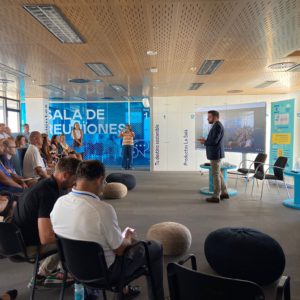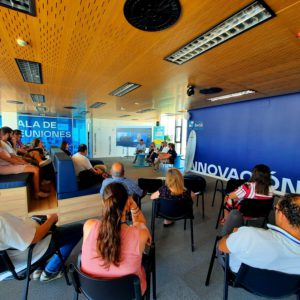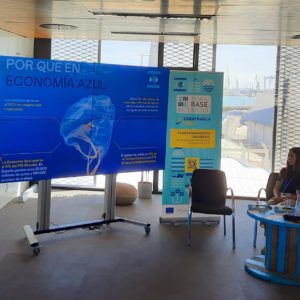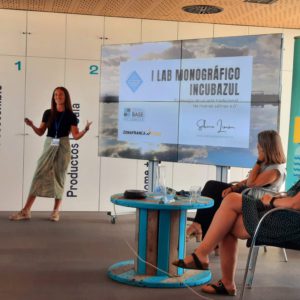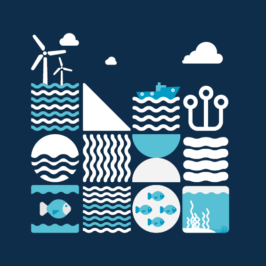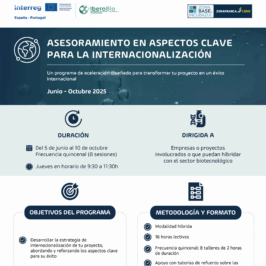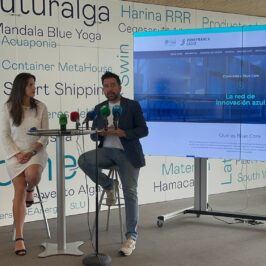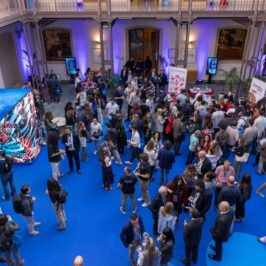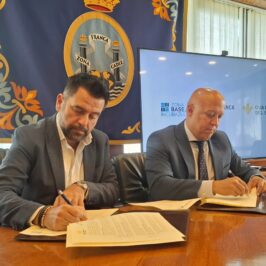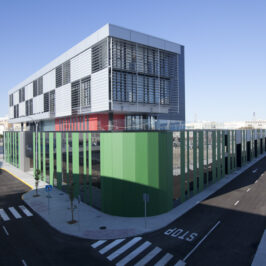We have had in our Agora of IncubAzul an interesting seminar on the present and future of the salt flats and its role in innovation. It is an ancient activity linked to the province of Cádiz that became an element of wealth, as well as a shaper and a landscape, but which entered into crisis with the arrival of the refrigerator. Then it ceased to be necessary for conservation.
Of 170 salt flats that once existed in the Bay of Cádiz, now there are only three left that continue to exploit the pits. And there are many people determined to recover this tradition because it can generate wealth. But it is that, in addition, it conserves the environment, contributes to climate conservation and houses a multitude of species.
The event was opened by the special delegate of the State for the Free Trade Zone, Fran González. In his greeting, he welcomed the event and highlighted the importance of days like these.
Alexander Perez, from the University of Cádiz, is the promoter of the recovery of the salt mine La Esperanza, to host business projects emerged from the UCA, to spread the salt activity and to be a source of scientific knowledge. He was able to tell with passion how in these years of La Esperanza's journey it has been shown that it can diversify economically.
the president of Salarte es Juan Martin, a lover of the salt flats who has also proposed its recovery. He has just finished a study on the salt flats in Europe that allows for a map with all the resources, as well as their activity and diversification. An exhaustive work that he was exhibiting and that delighted the assembled public.
Entrepreneurship in the salt flats
One of the conclusions that became clearer is the possibility of diversification offered by the salt flats. They can house the traditional work of extracting salt, fleur de sel or salt flakes. All this with conditions and characteristics that can fit in any gourmet field.
But they can also host leisure activities and experiences, tourism, crops… Those were the examples that counted Susana Martinez, CEO of Products the room; y Sabine Lemon, which carries the Salina the German in Huelva.
In the case of Susana, it is a company dedicated to the collection and treatment of salicornia, a plant that grows in the salt flats and has extraordinary properties. This company is incubated in Incubazul and is testing new ways to promote the cultivation of this plant. Also, she markets it.
The Salinas El Alemán are a good example of diversification. In addition to the traditional extraction, they have a saline spa where they receive baths and mud and has released a line of cosmetic products for sale.
In the case of Taite Cortes, coordinator of Incubazul, was able to present the incubator project and the possibilities it offers to companies that want to innovate and start companies in the salt environment.
Technology versus tradition
The other section of the conference dealt with technology and innovation in the salt mines, led by Diego Saez and Eduardo Ibarra, from MESbook, a company specializing in industrial management; Y plannifai, an application that helps you manage projects, people and a multitude of processes quickly and efficiently. Both explained the opportunities offered by technology in the exploitation and optimization of these traditional installations.
This was precisely one of the essential elements of the discussion that followed: what part of the work has to be kept in line with the traditions and what part can be complemented. It would be about having processes and technologies that help on a day-to-day basis. The experience of Sabina Limón and Susana Martínez is one of complementarity, compared to other voices more inclined to the traditional.
The need to publicize the resources that exist and the tradition that has preceded us was also exposed. And this is so because only information and knowledge can give rise to entrepreneurship and innovation. And when the world of salt is known, development options and new ideas and companies, such as La Salá, are born as a business opportunity.
This High Technology Incubator project for the promotion and encouragement of innovation and technology transfer to micro-SMEs in the Blue Economy sector In Andalucia “[BlueEcoIncuba x Lo



